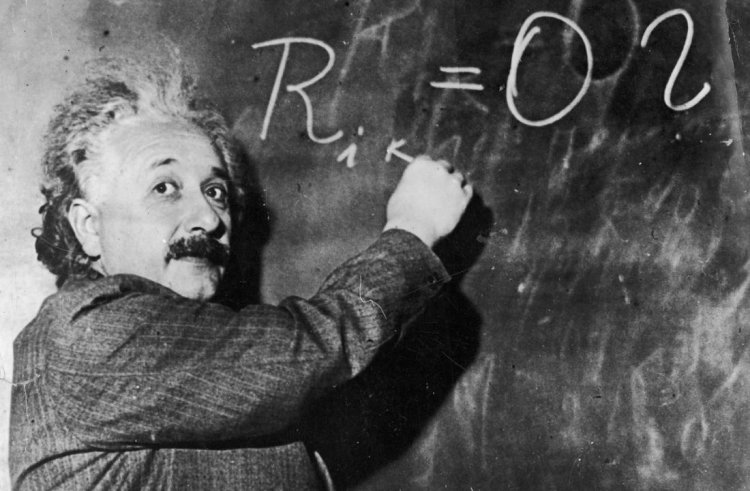Deep thought provoking questions to give new horizons to your thinking
Deep thought provoking questions to give new horizons to your thinking
Updated on August 17, 2022 12:46 PM by Evelyn Mia
Philosophical questions are those incredibly interesting, thought-provoking questions that force you to think deeper. More often than not, the deeper you think about these questions… the harder these become. Philosophy is nothing but the study of ideas about truth, meaning, knowledge, and truth. It is among the oldest practiced science in the history of humanity.
This is because philosophical questions such as what life means, how our universe works, and where we are from are deeply rooted in humans' urge to know more. Think about it – our desire for knowledge and meaning fuels our learning and help us move forward and be better human beings.
That's the reason asking philosophical questions is so important for everyone. It feeds you with knowledge about yourself, the universe, and humanity.
Also Read: Top 10 Mind-blowing psychological facts, you will be shocked to know
We have collected some of the deep philosophical questions with some brief descriptions of all the questions. The descriptions are just a gateway for your new and expanded thinking. Then, you can use your new thoughts to initiate a conversation with your new friends, write or perform meditation, and your mind expand.
Question – Is there any free will

A classic debate in philosophy from forever is fate vs. free will. Do we make our choices, or is everything written at the time of our birth? Almost everyone will strongly support one of two perspectives.
Add Block
Question – Through what does life gets its meaning
To answer this interesting question, you first need to determine whether life has a meaning. So, is life just another thing happening in the universe? Consciousness is an evolutionary quirk that has no meaning. If this is your belief, then my dear friend, the answer to the above interesting question is very easy and simple: Nothing.
However, if you believe life is just a random thing and that consciousness has an essential role in the universe, then through what does life get its meaning?
Also Read: 11 Mind-altering facts about motivation you never knew!
Question – Will nature dissolute or integrate
According to modern, Western scientific thought, everything moves toward disorder, becoming chaos. On the other hand, according to ancient Eastern thought, nature is cyclic and moves towards disorder and greater order. Another way to answer this question is to ask another question – Do humans create or destroy?
Add Block
Question – What do you mean by fair society
The word broken can be put into two categories – equal and just.
Now
The equal society represents what the word equal means. An equal society is where everyone gets everything the same, like health, wealth, rewards, punishments, etc.
A just society is where all the people get whatever they deserve. Her hard work equals more work; good habits mean better health, and wrong actions lead to punishment. The difference is easy to make out.
Also Read: Interesting Facts about the Aristotle – One of the greatest Greek philosophers
The problem is different people define fair differently. While discussing a fair society, everyone has their meaning of equality and justice.
So, what society would you want to live in? Do you prefer equality and wish to protect everyone's rights, or do you think justice is the only human matter that matters?
Add Block
Question – Is time have a starting or an ending point

Humans have so much factual knowledge about time. Most of this knowledge has come from experiments done on Einstein's theory of general relativity, such that space and time are connected. But, we aren’t interested in what we know about or what we can measure about it. We are asking what we can’t know – did time have a starting point?
We have quite strong evidence that the strong proofs that our universe came into existence around 13.8 billion years ago. But what happened before that? If the entire universe was compressed into a small dot, or if there was no universe at all, then did time exist? In other words, if time and space are connected, does time exist without space?
Also Read:Where can You Find Happiness on the Globe?
The philosophical question doesn't stop here; it gets deeper
What is your opinion about the ending point of time? Will the universe constantly change, or will time have an endpoint? What will happen to life if/ when time stops?
Add Block
Question – Is our universe real
Some forward-thinking scientists, such as Elon Musk, believe that an advanced civilization has the potential to create a simulation that is so advanced that the simulated life in it can get consciousness. According to him, this has already happened… we are inside the simulation just like in the film Matrix.
Suppose we assume that our current virtual reality is getting better at any rate (and our virtual reality is getting real). In that case, there will come the point where there would be no difference between virtual reality and actual reality.
Also Read: What are the habits to be happy
Now
Some feel there are flaws in Musk's theory. They argue that suppose if a banana is simulated so much that those in the simulation can eat it, the banana is no more a simulation; it is real now.
So, the question now is that what is reality? Are we in such a perfect simulation that we cannot detect it? And if our simulation is just real in all the ways, is it not simply another reality?
Add Block
Question – Are the needs of many more important than the needs of the handful

A thought experiment known as The Trolley Problem is used to demonstrate this question visually. Imagine a train is about to kill five railroad workers. You are standing beside a switch that can re-route this train on a different track, saving these five workers. Wait! There is a problem.
One worker on the new route will be hit by the train if you re-route the train
Now, the question is the death of one person better than the death of five people? Or are both equally bad? So, what should be our thoughts while using the switch – are we saving five people, or are we killing one person?
What has to be the basis of your decision, it is morally correct as you are saving people's lives, or do you need to consider the consequences of killing a person? If you believe in utilitarianism, then it wouldn't matter how you make the decision.
Also Read: A guide to improving your happiness based on scientific research
The good was done for more people. But, if you believe in deontologists, you would say that killing is always wrong. So, let the train run its course instead of intentionally killing a person. You can either focus on the consequences (saving five people) or how you got to the consequences (after killing one person). It is up to you to decide what is more important.
Add Block
Question – Do people have free will
Anybody&rsquo's first reaction would be obvious. I’m reading this because I wanted to. But, the concept of free will isn’t as simple as it might appear. It is not just only about your capability to make daily choices. It is questioning if your decisions or actions result from a series of events that impact your current state.
Add Block
What do you mean by this? Let’s see an example
Sam is a doctor who is a dog lover but hates pizza. He recently shifted to Los Angeles. As per a theory known as causal determinism, all the things about Sam&rsquo's life are already determined because of cause and effect earlier happenings beyond his control.
Also Read: 365 Deep & Thought Provoking Questions to Ask Yourself (& Others)
For instance
Does Sam love dogs because they surrounded him while he grew up?
Does Sam hate pizza because he once suffered from food poisoning after he ate a pizza as a child?
Did he medicine because his science teacher ignited his interest in the subject?
Did he choose Los Angeles because his best friends live there?
Did Sam decide anything about his current preferences and lifestyle? Or was it all the result of random situations he was a part of over the years?
Let us see a bigger and also more thought-provoking question
If all your moments and decisions result from that type of cause and effect, do people have free will?
Question – Why do you dream

Everyone has dreams. We are talking about those dreams we see and hear while we are asleep, not aspirations. Almost all ancient world cultures believed that God sent those dreams to us or it was a way to connect with God. But, modern theories associate dreams with things other than God,
Add Block
The four most popular dream theories
Freudian dream analysis – Dreams are meant to fulfill your wishes with the help of symbols. For instance, if you want to pass the final exams of your college, then you'll dream about your coronation (here, a crown is the symbol of your degree).
Also Read: The Psychology of Dreams: Inside the Dream Mind
Contemporary theory – Dreams are indicators of your emotions. The more the emotions, the less vivid the dreams are. For instance, there is a traumatized patient in the hospital. The patient dreams about being stuck in a tsunami (the fearful, traumatic emotion results in dreams of a fearful and overwhelming situation).
Activation-synthesis hypothesis – Dreams are the brains trying to logically knit together their activity, just like in your awakening state. All your dreams are illogical as your neurons constantly fire in your sleep. Your brain tries so hard to be logical that it attempts to craft a meaning or a story of your brain's random impulses.
Parallel universe dream theory – Dreams are gateways to enter the lives of counterparts who create many worlds theory. For instance, if you visit a graveyard with your former landlord in your dream, it is because a 'you' in the parallel universe is doing this.
Add Block
Question – What is truth
Now, this one is quite obvious if we stick to the definition. The definition says truth is what aligns with reality or the facts. But, the question we are asking is what is true. Who decides what is true? How can we tell what is true and what is not?
Does everyone decide what is true for themselves? Does everyone have his or her opinion about what is true, like which flavor of ice cream is good? And even if we deny it, we all know what is true for one may be false for the other.
Contrary to that
Is truth objective? Are some things in the universe true, regardless of who considers them? Or maybe the only truth is that we exist. Everything other than this truth could be an illusion.
Question – Are we obliged to help others

If we have rights, do we need to be responsible for ensuring all humans retain their rights? If yes, when did we take such responsibility for others? Why is not everyone responsible for their rights?
Keep on thinking about these questions while you continue reading
There are several beliefs that people can choose to live by. These beliefs will tell them how they should treat human rights.
For instance – The Golden Rule says to do for others what you want them to do for you, and our society will benefit hugely if all the members of the society have an attitude toward giving.
Also Read: Why Do We Dream?
Utilitarianism says the best action for others is the one that benefits more and more people.
So, what is your opinion about helping? Which one of the two above approaches should you follow? Or is there even a need to help others?





